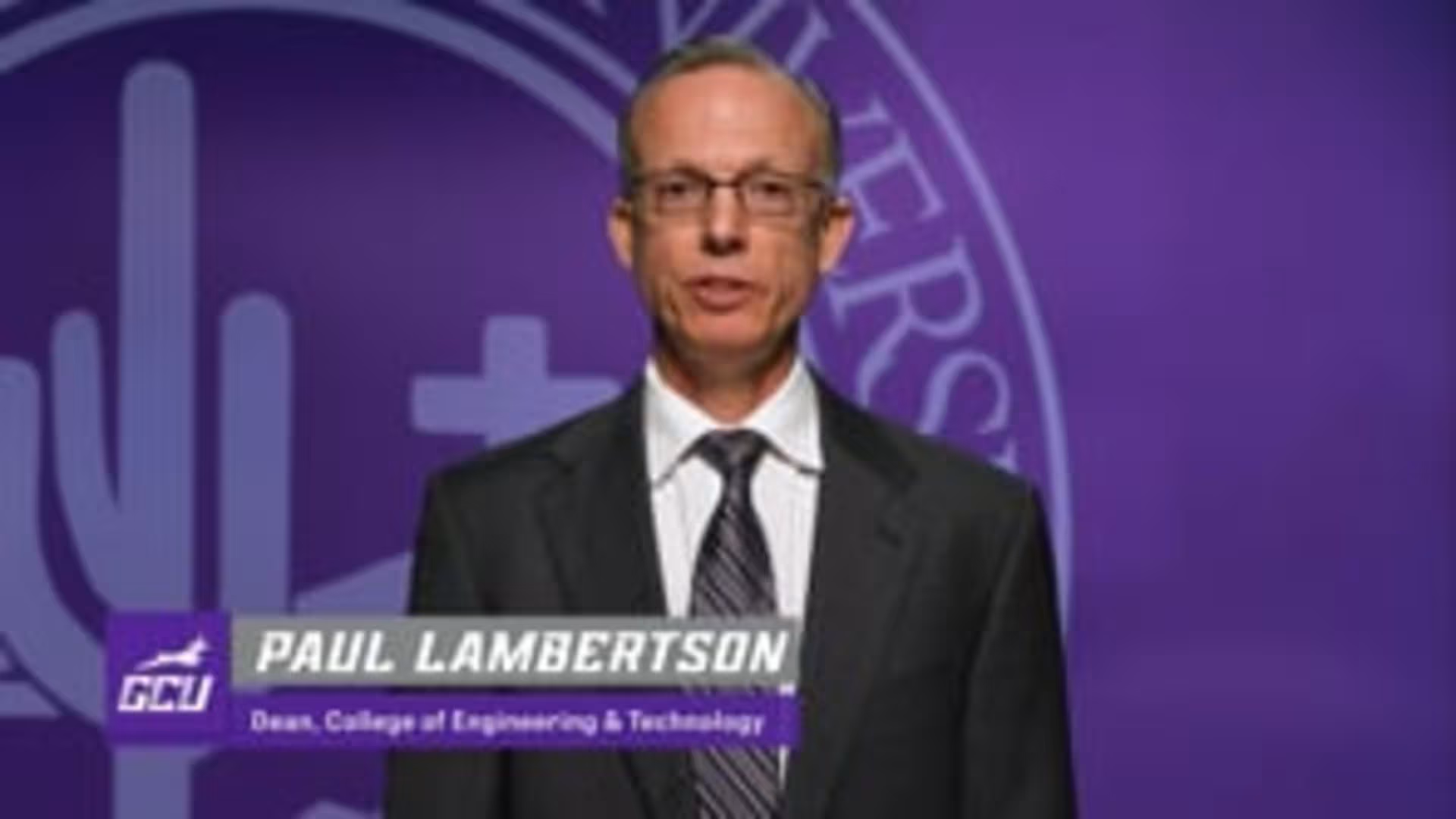


The Bachelor of Science in Applied Technology degree from Grand Canyon University teaches problem-solving skills through hands-on activities that provide industry-aligned technical experience. This program is designed to be adaptable, allowing you to customize your pathway to meet your interests and the demands of the industry. Throughout this program, you will take applied technology courses in computer networking, cybersecurity, database systems, business and project management, communication and information technology process management.

The BS in Applied Technology was created by the College of Engineering and Technology to strengthen students’ preparedness for information technology careers. In this program, you will examine the design, development, implementation and maintenance of relational database structures. In addition, you will be taught about the changing modes of communication and the advances in digital communications.
If you choose business-centric elective pathways, knowledgeable faculty will connect technology learners with the Colangelo College of Business to help customize your experience with more technical or business-focused classes. These courses emphasize professional ethics and marketing competencies in all projects. This degree can equip you with practical experience in developing and supporting a thesis or position in written, oral and visual presentations. Throughout the program, there is a focus on the interpersonal skills, communication strategies and other techniques required in diverse organizations.
This degree is designed to help prepare you to face today’s growing global economy with the necessary interpersonal skills, process management skills and database management techniques.
After earning this STEM degree, you may be prepared for careers that support computer applications, systems and networks, such as:(See disclaimer 1)
Computer and information systems manager
Computer systems analyst
Computer and information research scientist
Computer network architect
Database administrator
Database architect
Network and computer systems administrator
Software quality assurance analyst and tester
Web and digital interface designer
Computer occupations
Median annual wage for occupations in computer and information technology as of May 2023(See disclaimer 2)
New jobs estimated to open for computer and information technology occupations from 2022 to 2032(See disclaimer 3)
Engaging in extensive, project-based coursework, you will be taught to develop crucial skills needed in the industry. This program aligns with GCU’s Christian mission, aiming to graduate individuals committed to upholding ethical and moral principles within the field of technology by integrating the analysis of faith throughout your study.

At GCU, our online and on-campus communities are dedicated to our mission of graduating highly competent, capable and confident professionals ready to make positive contributions to their fields and communities. Our commitment to quality education is evidenced by our institutional accreditation by the Higher Learning Commission since 1968.

As a requirement of this program, you will complete a capstone project to demonstrate your readiness and understanding of information technology concepts. You will have the opportunity to:
The coursework in this program incorporates software applications and process management competencies that can help prepare you to embrace innovations in technology.
Key topics in this program include:
Fundamental concepts of cybersecurity
The design and development of information systems
Development and maintenance of database structures
IT business case planning for business activities
Business communications strategies and change management
Professionalism in communications, workplace conduct and ethics
Students have 20+ credits to customize based on their interests
If you’re looking to start your career in IT, networking or engineering, GCU has prepared a list of frequently asked questions about our project-based bachelor’s in applied technology degree.
What is applied technology?
What jobs can I get with an online applied technology degree?
Is an applied technology degree worth it?
Up to 90 credits, only 84 can be lower division
Credits: Fill out the Lopes Eval to find out what will transfer
Admission Requirements (Bachelor's)
OR 2.5+ Unweighted GPA and
Admission requirements may differ based on degree level, program and modality, or transfer status. Some programs of study may require a higher GPA and/or other qualifying criteria for admission. Please review full admission and program requirements in the University Policy Handbook.
*Math and reading only on a 1600 point scale (test date after 3/1/2016). SAT score of 1380 required for 2400 point scale (test date before 3/1/2016).

Pursue your passion for technology and innovation with purpose.